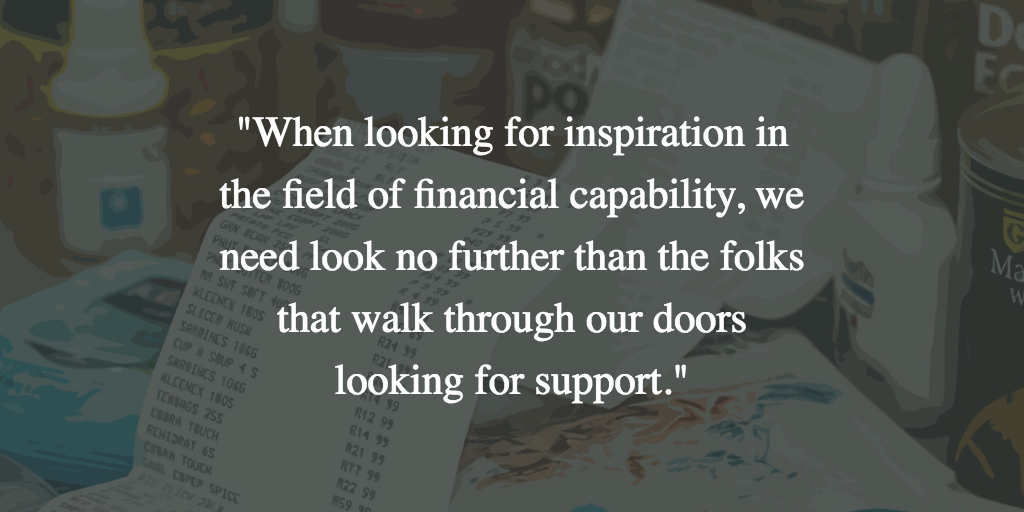A great mentor of mine in the field of domestic violence support services taught me an important lesson about how to make connections with a survivor. Always start by reminding them that they have a wealth of resilience and resourcefulness within themselves – they had survived this long and had found their way to our services.
I was reminded of this truth when Jess Junke, NP’s Director of Economic Opportunity, and I attended the Financial Capability Summit organized by the Prosperity Agenda in Tacoma last week. Members of our communities who survive on limited incomes have an incredible wealth of budgeting skills and financial management expertise that have allowed them to subsist on extremely limited resources. When looking for inspiration in the field of financial capability, we need look no further than the folks that walk through our doors looking for support.
Jesús Gerena from the Family Independence Initiative explained that the central question in their work is “what are people already doing to maintain financial resilience and how can we invest in that?” Their work builds on goals clients choose with other community members. Allowing clients to self-select their path forward encourages the sustainability and longevity of lessons learned well beyond their participation in the program.
Dr. Crystal Hall from the Evans School of Public Policy and Governance at University of Washington used data from the field of behavioral economics to remind us that we must “leverage the expertise that families with low incomes bring to the table.” One of our clients might know what type of glue will hold together a busted radiator, another might know what day of the week to avoid the SNAP office, someone else has a homebound neighbor who will make sure their kids get off the bus every day. We can work with our clients to inventory their specific sets of knowledge, skills and relationships and start valuing those as assets.
Jiaying Zhao from the University of British Columbia reminded us that people living in poverty don’t necessarily need lessons in financial management. Instead, they need us to provide streamlined, easy access to resources that reduce scarcity in their lives. For instance, technology is available so that agencies can create a common intake form for all of our various programs to reduce repetitive paperwork.
Clinton Taylor from Financial Beginnings and Drayton Jackson, founder of the Family Day Foundation, encouraged us to just ask. Just ask our clients, community members, and neighbors what will work best for them.
Anne Price from the Insight Center for Economic Development closed out the day with a reminder of the genius of Angela Davis, that “radical simply means grasping at the root.”
Sometimes radical innovation can be as simple (and as complicated) as being more humble, engaging in active listening and making space for our clients to take the lead. We need to continue asking ourselves – who is at the table? Do we have true representation from the communities we are seeking to serve? Is the space safe enough for them to express themselves truthfully? Are we truly asking them to bring the deep wisdom they have and share it with program and policy makers? Are we actively folding their wisdom into program and policy design?
We are well on our way to begin answering yes to these questions. And we will continue to need all of our partners’ support as we seek to build meaningful and lasting pathways to opportunity for everyone in our communities across the state.

